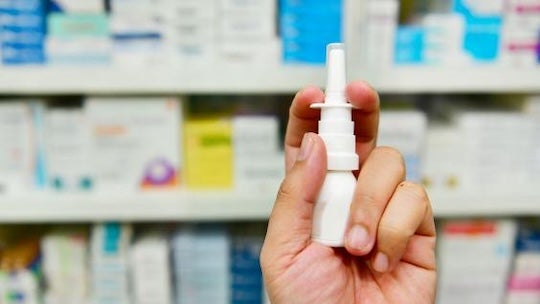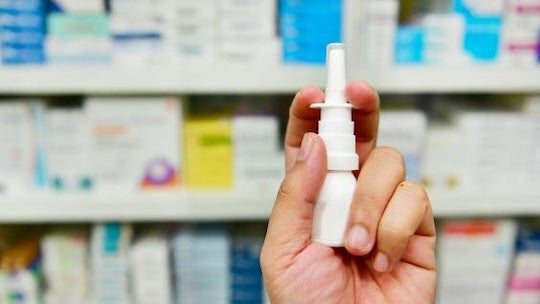HOUSTON – (Feb. 8, 2024) – Though opioid overdose remedies are approved for over-the-counter usage, many Houston pharmacies have not made the lifesaving medication available, according to a report from Rice University’s Baker Institute for Public Policy.
Narcan, a naloxone nasal spray that reverses an opioid overdose, and its generic equivalent were both approved for over-the-counter (OTC) sale last year by the Food and Drug Administration (FDA). Making naloxone available this way is meant to increase accessibility and even encourage potential bystanders to carry this lifesaving medication.

In the Houston area, 69% of pharmacies surveyed carried some version of naloxone without requiring a prescription. Of these, 71% said the medication is located behind the counter or in a locked cabinet. Pharmacist assistance was required for 45%, cashier assistance was required for 26% and three pharmacies said identification was required for the purchase.
Individual pharmacies have discretion to decide whether to carry naloxone, the price of sale and where to place it in the store. These inconsistent policies discourage and limit access in several ways, said Katharine Neill Harris, the Baker Institute’s Alfred C. Glassell, III, Fellow in Drug Policy, who oversaw the student-led project.
“People may not be aware that naloxone is available if it is not readily visible, reducing the efficacy of the policy,” Harris said. “Additionally, people who use drugs may be hesitant to ask pharmacists or cashiers for naloxone due to the real and perceived stigmas against them. These inconsistent naloxone policies among pharmacies even within the same company can create confusion for customers regarding how to access the drug.”
The state of Texas has been involved in nationwide litigation settlements against pharmacies for their role in the overdose crisis. Pharmacies implicated in this epidemic should be pressed to make naloxone more available, Harris argued.
“The FDA approved naloxone for OTC sale with the goal of improving accessibility to this lifesaving medication and negating the worst effects of the overdose crisis,” she said. “Pharmacies can help achieve this goal by making Narcan and its generics available on the shelf rather than requiring customers to ask for staff assistance. Empowering those who need help and potential bystanders to freely access the medication is an important step in mitigating drug overdoses.”

